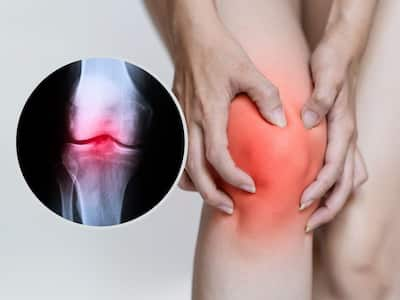Don’t Miss Out on the Latest Updates.
Subscribe to Our Newsletter Today!
Rheumatoid Arthritis Symptoms: What Happens Inside Your Body When You Are Suffering From Rheumatoid Arthritis?

Rheumatoid arthritis (RA) is a chronic autoimmune disease that causes severe inflammation in the joints, leading to pain and discomfort. The condition can also affect other organs and tissues in the body. Read on to know what this condition can do to your organs.
Rheumatoid arthritis (RA) is often thought of as a disease that primarily affects the joints, causing pain, stiffness, and swelling. However, its impact extends far beyond just the musculoskeletal system. Unfortunately, RA can affect multiple organs and systems in the body, leading to a range of health complications. From cardiovascular complications to mental health issues, this chronic condition poses multifaceted challenges for those living with it. So, comprehensive health care support is required for those having RA.
Rheumatoid arthritis (RA), a chronic inflammatory condition, not only impacts your joints but also extends its effects beyond. It leads to joint swelling and a variety of symptoms such as pain and stiffness. However, arthritis can have broader implications on your overall well-being. It is a known fact that RA is a long-lasting condition that targets both small and large joints, causing pain, swelling, and stiffness. It doesn't stop at the joints and also impacts other organs. Here, Dr. Shailaja Sabnis, Consultant Rheumatologist Lilavati Hospital, talks about some of the serious health issues that RA can cause:
Rheumatoid Arthritis: A Chronic Condition That Can Affect the Entire Body
Not just your joints, rheumatoid arthritis (RA) can also wreak havoc inside your heart, kidneys, etc. Read on to find out what happens inside your body after you are diagnosed with RA.
Also Read
The Heart
Rheumatoid arthritis leads to a higher risk of developing cardiovascular disease in patients. Furthermore, cardiovascular disease actually the leading cause of death among individuals with rheumatoid arthritis. Long-term untreated disease and inflammation play a significant role in the development of cardiovascular issues. The inflammation may play a significant role in promoting the development of plaque in blood vessels, increasing the likelihood of clot formation and subsequent stroke.
The Eyes
Are you aware? The condition can raise the chances of dryness and inflammation in the eyes. It is essential to consult a doctor and opt for timely treatment.
The Lungs
May be affected by rheumatoid arthritis, resulting in interstitial lung disease that manifests as a chronic cough and shortness of breath during exertion. According to various studies, interstitial lung disease is a significant complication arising from RA.
Skin
Skin rashes and ulcers on the arms and legs are common symptoms of this condition.
The Bone
Chronic inflammation because of this painful condition causes the loss of bone density, not only around the joints but throughout the body. Hence, one will have thin, brittle bones. What many people may not realize is that RA can also increase the risk of developing osteoporosis. Osteoporosis is a condition characterized by low bone density and fragile bones, which greatly increases the risk of fractures. The connection between RA and osteoporosis lies in the chronic inflammation associated with RA.
The Mouth
Those with RA tend to have Inflammation that damages the moisture-producing glands of the mouth leading to a dry mouth.
The Brain
RA might trigger inflammation and immune responses that can harm nerve tissues, leading to neurological symptoms. These symptoms include numbness, tingling sensations, muscle weakness, and even cognitive dysfunction. The constant pain and limitations caused by RA can lead to feelings of anxiety, frustration, sadness, and even depression.
The Kidney
Certain medications commonly used to manage RA, such as nonsteroidal anti-inflammatory drugs (NSAIDs) can also have adverse effects on kidney health.
There is no cure for RA, but there are a number of things that can be done to manage the condition and improve quality of life. Some of these include:
- Exercising Regularly: Regular exercise can help to improve joint function.
- Following A Healthy Diet: Eating a healthy diet can help to reduce inflammation and improve overall health.
- Managing Stress: Stress can worsen RA symptoms. It is important for people with RA to find healthy ways to manage stress, such as exercise, relaxation techniques, and spending time with loved ones.
Disclaimer: The home remedies given above are just some suggestions and tips to manage the condition. Do not ignore the symptoms if they persist for a long time. Make sure you consult a doctor before making any changes to your diet.


